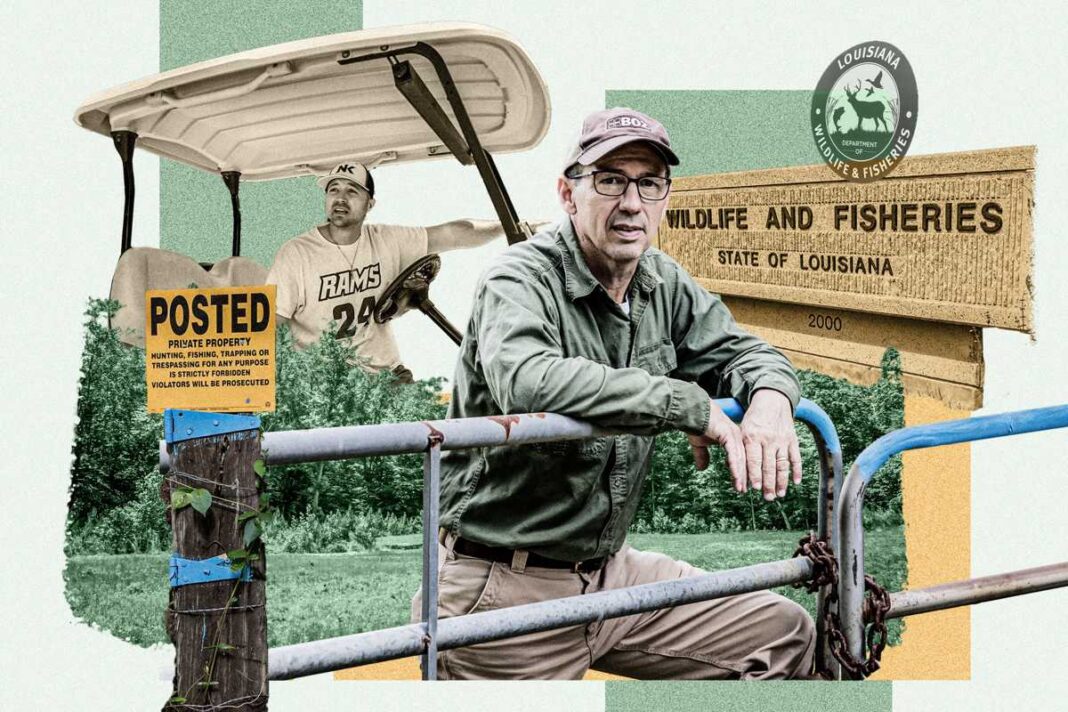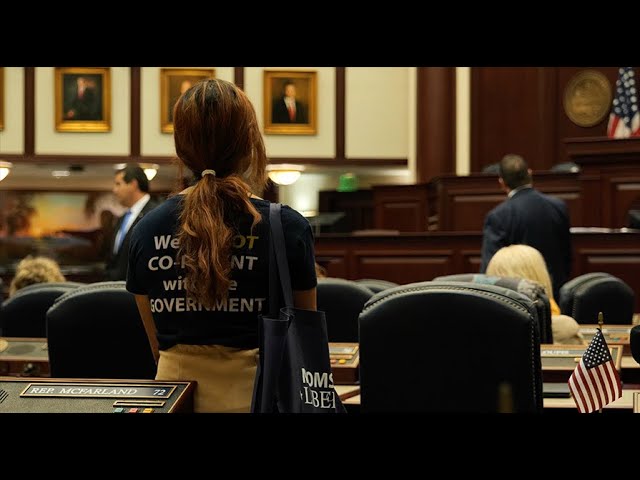Property owners are fighting a Prohibition-era Supreme Court decision that laid the groundwork for government agents to enter and search private land at will.
BATON ROUGE, La.—At 39 degrees under cloudy skies, that day was cooler than average for December. Having seen no deer, Tom Manuel decided to leave.
He was taken aback when he met a Louisiana Department of Wildlife and Fisheries agent standing beside a state truck. The warden asked for his gun so he could unload it.
Mr. Manuel refused to hand over his Remington Model 700 bolt action rifle, though he did remove a round from the chamber and place it on the seat of his pickup truck.
After answering the warden’s questions and proving he had not violated any game laws, Mr. Manuel asked the officer what probable cause he had to enter clearly posted private property.
“He said, ‘The mere fact that you’re hunting was all the probable cause I need,’” Mr. Manuel told The Epoch Times of the incident on Dec. 6, 2023.
Mr. Manuel found this odd since the officer had no way of knowing anyone was even on the property until he was almost 100 yards past the property line.
Mr. Manuel had left his gate open but parked his truck behind some young pines well out of sight of the main road earlier that morning. With the boundary lines clearly marked in blue paint and “No Trespassing” signs prominently displayed, he believed he had done all that is required by law to keep unwanted visitors out.
The Supreme Court laid the legal groundwork for Mr. Manuel’s encounter with the game warden 100 years ago, more than 680 miles away on a rural property near Travelers Rest, South Carolina.
The Supreme Court instituted the “open fields doctrine” through a series of decisions beginning in 1924. This doctrine interprets the Fourth Amendment to the U.S. Constitution as giving the government carte blanche access to billions of acres of private property—in other words, Fourth Amendment protection doesn’t extend to open fields.









